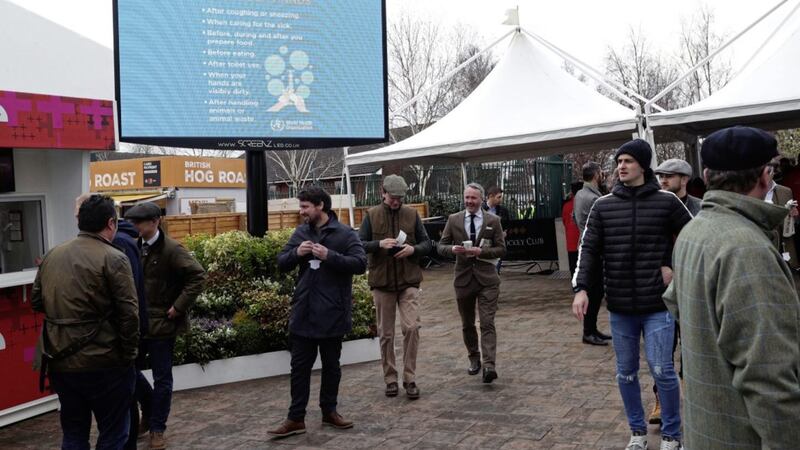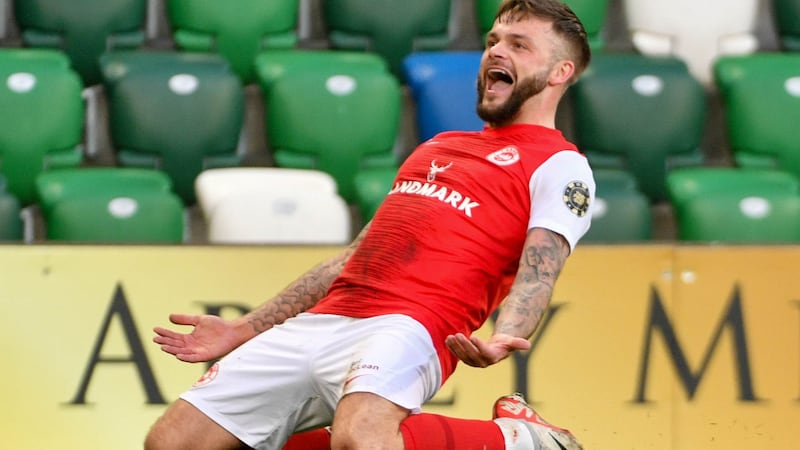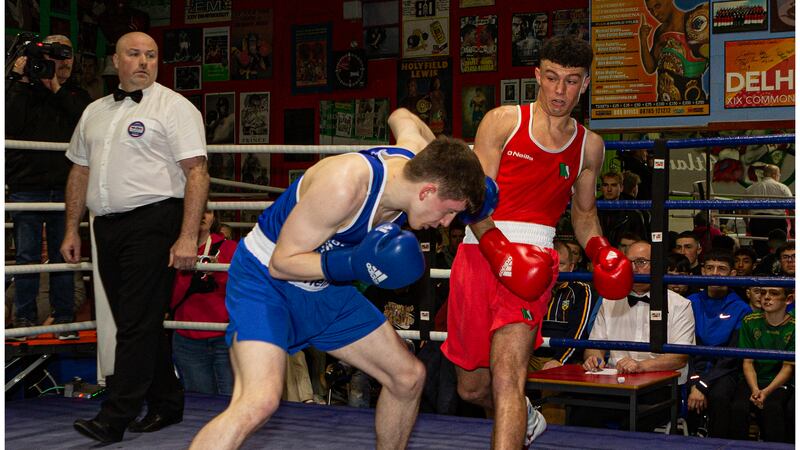BEHIND closed doors. There’s a nasty edge to that phrase, a sense of wrongdoing, or of punishment.
The hidden darkness, the idea that ‘You never know what goes on behind closed doors.’
As it happens, we can actually see, and it’s not terrible, but it’s still sad in a sporting context.
The list of matches and events affected by coronavirus has been growing daily, and will probably increase.
It seemed bad enough that ‘The derby of Italy’, the clash of Juventus and Inter Milan, took place without any supporters present on Sunday.
Yet even the very fact of the game going ahead caused controversy – and a day later Italy had decided to suspend all sport until at least April 3 as part of a nationwide lockdown.
As so often in modern discourse, it’s tricky to steer a sensible path between hysteria and those who dismiss any concerns as a combination of ‘political correctness gone mad’ and ‘fake news’.
Still, it might be wise to be guided by these words from former US Secretary of Health and Human Services, Michael Leavitt:
“Everything we do before a pandemic will seem alarmist. Everything we do after a pandemic will seem inadequate.”
Whether matters on our islands reach Italian levels remain to be seen. Without more action, they might.
Ireland’s rugby Six Nations matches in Italy and now France have already been postponed, although such decisions are easier to make in competitions with very few matches.
If it comes down to it, sport should stop, of course, although there are plenty of other non-essential parts of life which would also have to halt. Significantly, though, St Patrick’s Day parades have already been cancelled.
Any international aspect is now a concern, such as soccer’s Nations League play-offs, with both Irish teams due to travel to eastern Europe later this month.
At present there are greater doubts over the Republic of Ireland’s match in Slovakia, where the government this week announced a 14-day ban on all sporting events - and that the game would be behind closed doors.
Slovakia might even be pushing for postponement, given that six squad members are with Italian clubs – and star player and leading scorer Marek Hamsik is now playing in China.
However, planned ticket sales in Bosnia & Herzegovina were postponed yesterday, increasing the likelihood that Northern Ireland’s game there will be spectator-free at best.
For now, sport in Britain and Ireland is more likely to be looking at ‘behind closed doors’ rather than postponements. Some Champions League and La Liga games are now ‘BCD’.
Just for the record, anyone who tries to place an asterisk beside this year’s English Premier League title is full of enough gall to last them to the bitter end of their lives.
Putting aside the dubious pleasure of ‘banter’, the only upside of coronavirus has been getting the message of basic blooming hygiene to the wider public. Anyone who’s ever been in a gents’ public toilet will understand. Hopefully handwashing will continue long after this crisis is over.
Hopefully sport can continue relatively normally too, even if international encounters suffer.
There’ve been many awful, incomprehensible sport marketing slogans – take ‘Where your edge belongs’. Please.
However, one of the undoubted best remains this: ‘Nothing beats being there’.
A similar saying, that ‘Football is nothing without fans’ has been attributed to the late, great Celtic manager ‘Jock’ Stein.
More fully, Stein is quoted as saying: "Without fans who pay at the turnstile, football is nothing. Sometimes we are inclined to forget that. The only chance of bringing them into stadiums is if they are entertained by what happens on the football field."
Life has to go on and sport has always been a source of joy in testing times, potential relief from other problems.
One of the most attractive aspects of sport is its uncertainty. Yet that quality becomes a drawback when you don’t know if games/ events are going to go ahead or, even if they do, whether or not spectators will be able to attend them.
Postponements might be a more practical possibility if this were an odd year, that is one without a major tournament involving European nations. In such circumstances, Leagues could conclude in early summer, after a break.
However, with Euro 2020 to come that limits that option. The idea to have 12 host cities for that tournament has divided opinion already and looks more and more problematic.
Clearly we need much more than fingers crossed to avoid a worse situation, but sensible precautions and behaviour can help greatly.
Although letting the weekend Serie A games go ahead was criticised by the Italian players’ union, complete closedown seems impractical, definitely impossible.
Besides, sportsmen and women are fit, healthy young people, looked after much better and more closely than almost anyone else.
We can certainly do without pre-match handshakes. Even mascots – sorry, kids.
Sharing drinks bottles was always a bit disgusting. Those pre-planned hand jive goal celebrations were even more objectionable.
‘Behind closed doors’ matches could bring other unwanted side-effects, though.
The situation could be a dream scenario for broadcasters, allowing them to schedule games whenever they like. Then again, worrying about how and when fans get to and from matches doesn’t appear to be of great concern to certain fixture schedulers anyway.
In soccer, the importance of match-day income has been steadily decreasing for the bigger clubs, increasingly overtaken by TV money.
That’s not the case for those sides mostly outside the TV companies’ spotlights, though, and stopping their income stream could cause severe difficulties.
There are few easy decisions. Of course the absolute priority is to safeguard public health, to reduce the risk of the disease spreading as much as possible.
In the smaller, much less important, sporting scheme of things, the sooner everyone can go to games again, the better.
In the meantime, evidence that games are less entertaining, more boring, lacking atmosphere without supporters would be the only other welcome effect of coronavirus.









